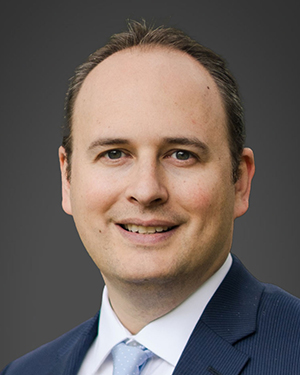For high-net-worth (HNW) investors and family offices, one of the attractions of investments in commercial real estate is often the tax advantages such investments offer. To that end, in December, FTI Consulting announced that Michael Osherovitz has joined the global business advisory firm as a managing director and head of the private client tax group within the company’s real estate solutions practice. He is based in New York.
With some 20 years of experience in tax planning and compliance, Osherovitz joined the global business advisory firm from Oak Hill Advisors, LP, where he was head of family office. He spoke with WMRE about his new role, how HNW individuals and families can make the most out of generational wealth, and what tax challenges to keep an eye on during this point in the cycle.
This Q&A has been edited for length, style and clarity.
WMRE: Can you tell us your background?
 Michael Osherovitz: My career has been entirely in tax, although it's taken three different avenues to where I am now. I spent about 12 years in public accounting, working for some of the larger CPA firms and private client groups. I wanted to focus more on ultra-high-net-worth families, and I had a lot of family office clients. So, then I transitioned to family offices and private [clients], and I ran a couple of family offices for ultra-high-net-worth individuals. So, my experience is within both public and private, and I think that gives me the ability to have a unique perspective on the issues these families face, because I've been on the advisor side, as well as on the inside looking for advisors.
Michael Osherovitz: My career has been entirely in tax, although it's taken three different avenues to where I am now. I spent about 12 years in public accounting, working for some of the larger CPA firms and private client groups. I wanted to focus more on ultra-high-net-worth families, and I had a lot of family office clients. So, then I transitioned to family offices and private [clients], and I ran a couple of family offices for ultra-high-net-worth individuals. So, my experience is within both public and private, and I think that gives me the ability to have a unique perspective on the issues these families face, because I've been on the advisor side, as well as on the inside looking for advisors.
WMRE: And is your work restricted at all by geography, or do you work with individuals from all over the place?
Michael Osherovitz: I work with investors and individuals in industries all around the country. While FTI specializes in, and they're the best at, real estate, we do have a significant amount of clients in other industries, including financial services, private equity and a host of other industries.
WMRE: Drilling down more into the real estate space: In your view, what are some of the biggest tax issues that your high-net-worth clients are trying to grapple with when it comes to their real estate holdings?
Michael Osherovitz: There's been news lately about the IRS expanding its ranks, hiring 87,000 new agents. The reason why they're expanding their ranks is because the agency determined there's a $600 billion spread between what people owe and what they pay. While all these agents will be hired over a few years, there will be a substantial increase in audits after these hires are made. And high-net-worth taxpayers can expect to be targeted. And while they always should be diligent in their record keeping, now is definitely not the time to be complacent. Real estate professionals would likely see increased challenges from the agency. There are significant advantages to being designated [as] a real estate professional for tax purposes, including not being subjected to the passive loss limitations, as well as not having to pay the net investment income tax. To be a real estate professional, you need to have more than half of your personal services within the year in which you materially participate in real estate, and you have to spend more than 750 hours. And the burden of proof is on the taxpayer. While contemporaneous reports are not necessarily required by the IRS, it'll be very difficult to satisfy these tests if you're recreating them after year end. So, there are a lot of cases where the IRS successfully challenges whether somebody is considered a real estate professional. And it's more important now than ever to make sure that our clients keep accurate records on time spent and what exactly the time was spent on.
WMRE: How about tax issues in general for high-net-worth families?
Michael Osherovitz: More broadly, if you wanted to talk about what are the issues that high-net-worth families in real estate and otherwise are facing in this cycle, the lifetime gift exemption is about to go down significantly after 2025, and the focus really is on estate planning and the many considerations that come along with it. Not only do these individual investors need to have a plan regarding transferring assets to the next generation—this is really where we specialize in our private client group—they need to do it in a tax-efficient manner.
But maybe even more important is they have to properly educate the next generation about what it means to have wealth. In a lot of instances, the young and even adult children of ultra-high-net-worth individuals may be financially illiterate and may not know what is coming to them because the conversations never took place. And further, they may not be able to deal with an immediate influx of wealth. It is therefore important for advisors such as myself and others out there to reach out to these high-net-worth families in real estate and otherwise and have conversations around their estate plan. That's really the key there because wealth does not typically last. There's a famous saying, “shirt sleeves to shirt sleeves in three generations.”
WMRE: Do you have any specific examples of how tax and estate planning for high-net-worth individuals can help decrease the likelihood of this happening?
Michael Osherovitz: So, the indication on that—shirt sleeves to shirt sleeves in three generations—is that the first generation generates the wealth and makes sure their kids have a good education and good opportunities. The second generation watches the first generation toil and work hard, and they understand that [they have] options, along with good education. Typically, they have the careers that they want without a financial concern—and this is also typically where the wealth tops out.
The third generation isn't as close to the first generation and the hard work that they put in. They typically have a lot of hobbies and they'll do what they want. By the end of the third generation, there's nothing left. And then the fourth generation starts over. So, the families that have good communication around finances, and who have good advisors who are involved in some of these conversations with all family members around wealth and succession planning—usually it will make all the difference. With regards to motivation, that's a huge factor. We talk to clients about this all the time. How do we keep kids motivated when they know what's coming to them? You can provide them with opportunities to develop their skills. They really need to have accountability for what they're doing. And a good way to do that is to get them involved.
If the family has a private foundation, you can get them involved in philanthropy. If we're successful, we're able to tie in what their interests are along with some type of financial plan. There was a unique opportunity after the Tax Cuts and Jobs Act of 2017 with qualified opportunities on investments. This is where the government provided tax incentives in order to get investments and economic development into distressed communities [known as Opportunity Zones]. So, if someone invests their capital gains into these Opportunity Zone funds, the taxable gain will be deferred and if the property is held long enough, it will be completely eliminated. So, this is a powerful opportunity to have your cake and eat it too. You can do good for these communities and defer or eliminate the tax and capital gains. And while this is not charity, this is an investment, it does kind of run parallel to a social cause.
WMRE: I know we talked a little bit about where we are at this point in the cycle. Are you seeing a lot of your high-net-worth clients interested in investing more in real estate?
Michael Osherovitz: There's always been an interest in real estate, but people see real estate as a good investment to have in an inflationary environment. And that's why we're seeing even a more significant interest, because we don't know when this environment is going to end. It seems like it's ongoing right now. So, there's definitely more of an interest in getting into different types of real estate structures.
And just in general, even before this, we’ve definitely seen more of an interest in real estate from, not the ultra-high-net-worth individual, but just a high-net-worth individual who has money laying around. We have seen them purchasing more properties to rent out. About 10 years ago, I was not seeing a lot of that. Now we're seeing a lot of these mid-level, high-net-worth individuals that are investing on their own in real estate.

